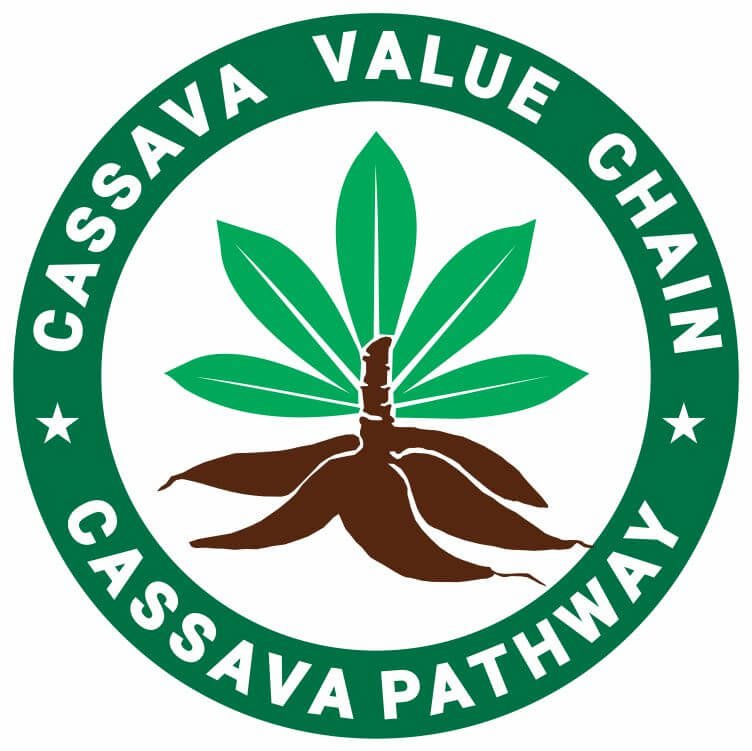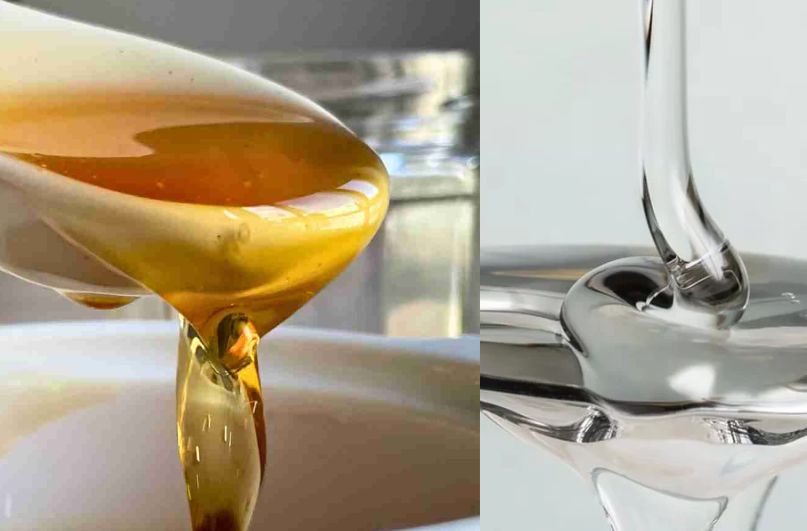Are tapioca syrup and cassava syrup the same? While both cassava root syrups come from cassava root, they differ slightly in production and use. Learn how they compare in flavor, texture, and benefits!
Tapioca syrup and cassava syrup often spark confusion, as both originate from the same source, tapioca ingredient.
While they share similarities, key differences set them apart, influencing their use in food and beverages.
Whether you’re looking for a natural sweetener or a replacement for corn syrup, understanding their distinctions can help you make informed choices.
From texture to taste and processing methods, these syrups serve different purposes in various culinary applications.
If you’ve ever wondered whether tapioca syrup and cassava syrup are truly identical, it’s time to uncover what makes each unique and how they fit into your sweetening needs.
Tapioca syrup, extracted from tapioca starch, offers a mild sweetness perfect for a variety of recipes, while cassava syrup, made from the whole root, retains a richer flavor and more nutrients.
Are they truly interchangeable, or do each bring unique qualities to the table?
Let’s take a look at their differences and help you choose the right one for your culinary and health needs.
Differences Between the Cassava Root Syrups: Tapioca Syrup and Cassava Syrup
The distinction between tapioca syrup and cassava syrup is hard to separate.
This distinction lies primarily in their processing methods, flavors, textures, nutritional profiles, and culinary applications.
Tapioca Syrup
Tapioca syrup is derived from tapioca starch, which is extracted from the cassava root.
This process involves substantial refinement and processing, resulting in a product that is predominantly made up of carbohydrates.
As a result, while tapioca syrup serves as an excellent sweetener, it tends to lack significant vitamins and minerals, making it a less nutrient-dense option.
Cassava Syrup
On the other hand, cassava syrup is produced by minimally processing the entire cassava root, retaining more of its natural components.
This method contributes to a richer flavor profile, characterized by a robust, earthy sweetness.
The texture of cassava syrup is notably thicker, offering a more substantial mouthfeel than its tapioca counterpart.
These differences in flavor and texture make cassava syrup more suitable for traditional dishes, adding depth to recipes that call for natural sweeteners.
Nutritional Content
- Cassava Syrup: When it comes to nutritional content, cassava syrup has the upper hand. It contains essential vitamins and minerals, along with dietary fiber, which can provide health benefits.
- Tapioca Syrup: In contrast, tapioca syrup mainly serves the role of a caloric sweetener, devoid of additional nutrients. This nutritional disparity is crucial for consumers aiming to include functional ingredients in their diets.
Application and Uses
The applications of each syrup further emphasize their differences.
- Tapioca Syrup: Tapioca syrup is often favored in modern processed food formulations due to its neutral taste and clear consistency, making it ideal for a variety of culinary uses, including baking and confectionery.
- Cassava Syrup: On the other hand, cassava syrup aligns well with traditional and health-conscious recipes, catering to those who seek a more authentic flavor and nutritional benefits in their meals.
Related: Tapioca vs Cornstarch
Health Considerations
When comparing tapioca syrup and cassava syrup, it is essential to evaluate their individual health implications.
Tapioca Syrup
Tapioca syrup, derived from the cassava plant’s starchy component, offers a sweet taste but carries a low nutritional value.
It is characterized by high-calorie content, primarily derived from carbohydrates.
For people seeking a natural alternative to refined sugars, tapioca syrup may be a suitable option, although it should be consumed judiciously.
Due to its high glycemic index, excessive intake of tapioca syrup can lead to rapid spikes in blood sugar levels, which may not be ideal for people with diabetes or those monitoring their carbohydrate intake.
Cassava Syrup
On the other hand, cassava syrup presents a more appealing nutritional profile.
While it is also a source of natural sugars, cassava syrup typically contains more nutritional benefits compared to its counterpart.
This syrup is rich in certain vitamins and minerals, making it a more comprehensive option for those looking to satisfy their sweet cravings while still obtaining some level of nourishment.
Moreover, cassava syrup is believed to contribute positively to gut health due to its prebiotic properties, promoting a healthy digestive system.
Furthermore, cassava syrup is touted for providing sustained energy levels.
Unlike the quick bursts of energy associated with simple sugars, cassava syrup’s composition may help in maintaining more even energy throughout the day.
Despite these benefits, you should know that cassava syrup is still high in natural sugars.
Therefore, moderation is advised when incorporating it into the diet, ensuring that consumption aligns with overall nutritional goals.
Related: How Tapioca Starch and Tapioca Flour Differ
Cassava Root Syrup: Tapioca Syrup vs Cassava Syrup
Here’s a tabulated comparison of the two cassava root syrup – tapioca syrup and cassava syrup:
| Aspect | Tapioca Syrup | Cassava Syrup |
|---|---|---|
| Source | Derived from tapioca starch (extracted from cassava root) | Made from the whole cassava root |
| Processing | Highly refined and processed | Minimally processed |
| Nutritional Value | Primarily carbohydrates, lacks significant vitamins and minerals | Contains vitamins, minerals, and dietary fiber |
| Flavor | Mild, neutral sweetness | Robust, earthy sweetness |
| Texture | Lighter and thinner consistency | Thicker consistency, richer mouthfeel |
| Uses | Common in processed foods, baking, and confectionery | Used in traditional and health-conscious recipes |
| Glycemic Impact | High glycemic index, may cause rapid blood sugar spikes | Lower glycemic impact, offers more sustained energy |
| Health Benefits | Provides a natural alternative to refined sugars | Contains prebiotic properties, supports gut health |
| Suitability | Best for neutral-tasting applications | Ideal for those seeking natural sweetness with added nutrients |
| Consumption Advice | Should be consumed in moderation due to high sugar content | Offers some nutritional benefits but still requires moderate intake |
Which Should You Choose?
When it comes to selecting between tapioca syrup and cassava syrup, the decision often hinges on your needs and dietary preferences.
Both syrups are derived from the cassava root, but they possess distinct characteristics that may influence their suitability for various culinary applications.
Understanding these differences is important for making an informed choice.
If you are seeking a multifunctional and neutral sweetener, tapioca syrup might be the more appropriate option.
Its mild flavor profile makes it an excellent choice for baking, cooking, and as a sweetening agent in beverages.
Additionally, tapioca syrup has a higher glycemic index, which can be beneficial for people requiring a quick source of energy.
Conclusion
Tapioca syrup and cassava syrup, though both derived from cassava and the terms are interchangeable, differ slightly in production, flavor, and applications.
Tapioca syrup is made from cassava starch, offering mild sweetness and a clear consistency ideal for desserts and baking.
Cassava syrup, processed through fermentation, delivers an earthy flavor suited for savory dishes and natural sweetening.
Nutritionally, tapioca syrup provides carbohydrates with minimal nutrients, while cassava syrup may offer added probiotics and nutrients.
Choosing between them depends on culinary needs and health goals, with each serving unique purposes to cater to diverse tastes and dietary preferences.
References:
- https://www.sweetenerproducts.com/tapioca-syrup-made-from-cassava
- https://www.sweetadditions.com/blog-posts/what-you-need-to-know-about-tapioca-syrup
- https://www.healthline.com/nutrition/tapioca

Chimeremeze Emeh is a writer and researcher passionate about Africa’s most transformative root crop—cassava. Through his work at cassavavaluechain.com, he explores the entire cassava industry, from cultivation and processing to its diverse applications in food, health, and industrial use.
He also writes for palmoilpalm.com, where he shares his extensive experience and deep-rooted knowledge of palm oil, covering red palm oil, palm kernel oil, and refined products. His work there reflects his lifelong connection to agriculture and his commitment to promoting sustainable value chains in Africa.
Driven by curiosity and purpose, Chimeremeze aims to shed light on how cassava continues to empower communities, strengthen food systems, and link traditional farming wisdom with modern innovation.

